Ecommerce Influencer Marketing Guide [2026]
Learn things like how to find the perfect influencers for your business, how to execute an influencer marketing campaign, and other top strategies.
Updated November 6, 2024
![Ecommerce Influencer Marketing Guide [{year}] main image](https://entail.mayple.com/en-assets/mayple/61d2ea79f313c28f4c8db206_Influencermarketing_66db2fce7169ba4e06a08c2e7a96a606_2000-1699776073221.jpg)
Influencer marketing has become one of the most effective marketing channels out there. According to Business Insider, this industry was worth $8 billion in 2019 and is on track to be worth $21.1 billion in 2024.
And while you may think that most of this revenue is coming from big brands, the data shows that 19% of marketers are going to spend between $1,000-$10,000 per year in 2020.
So everyone’s doing it!
In this post, we go over some of the ways to find the right influencer for your eCommerce brand, how to best set up a campaign, and the common mistakes to avoid.
Check out this interview with Neal Schaffer for a quick summary of the topic.
What is Influencer Marketing?
Influencer marketing is when brands collaborate with online influencers to market their products or services. The advantage of using these influencers is that the brand gets access to an engaged audience and can create another touchpoint along the buyer’s journey. This is usually done on various social media platforms - Facebook, Instagram, YouTube, Twitter, and TikTok.
But which influencers should your business work with?
Let’s explore the different types of influencers there are.
4 Types of Influencers
In the last few years, marketers found that influencers with a bigger number of followers don’t necessarily have authentic or engaged audiences.
Do you remember Instagram’s crackdown on fake followers back in 2018?
So the influencers with smaller audiences tend to have much more engaged and focused audiences. And this is ultimately what you want as a brand.
You want to get the most targeted reach to your ideal customer.
You don’t want to pay a wad of cash to a celebrity on Instagram and get no clicks or sales from the campaign. That’s why influencers break down into 4 main types.
Nano influencers
Nano influencers are the new trend.
These are influencers that have 1k-10k followers and are quickly becoming popular among many brands.
Here’s an example:
The problem with nano-influencers is that as soon as you feature one of them, they grow to over the 10k followers limit and become micro-influencers.
Nano influencers have 2x the engagement of micro-influencers and are 3x cheaper.
Nano influencers will probably do a post for you for some free product or <$100.
The next category is micro-influencers
Micro-influencers
Micro-influencers are accounts with 10k-50k followers and have engagement rates of around 2-8%.
They were the hype of 2018-2020 and are still the most widely used category of influencers.
Here’s an example:
Chloe is a home decor influencer with an average engagement rate of 8%! That’s 2066 likes and 72 comments per post, on average.
If you are working with an influencer and trying to figure out their engagement rate I would use an engagement calculator like this one.
Coming back to Chloe.
Her audience is way more engaged than an influencer with 300k+ followers or a celebrity with millions of followers.
The power of using micro-influencers is that they all have a certain style.
So if you are in the home decor industry, for example, you could find specific influencers whose audiences are into a design style that’s most similar to the products that you are trying to promote.
If you really want to work with some of the bigger names out then you should try your luck with macro-influencers.
Macro-influencers
These are the traditional influencers that everyone thinks of. They have around 100k-500K followers and get pretty expensive.
They usually charge in the thousands for a post or a story on Instagram.
Here’s an example:
Jamie is an incredible travel photographer.
His engagement rate is also through the roof - 5% - which is much higher than usual for a macro influencer.
Here’s another example - a vintage designer and sneaker influencer Sean Wotherspoon:
Sean has a much bigger following of over 1M followers and his engagement rate is at 3%.
The next category is celebrities.
Celebrity influencers
Celebrities and celebrity influencers are almost synonymous these days.
These accounts have 1M+ followers, usually in the range of 5M-10M.
Gary Vaynerchuk is a great example of someone who has crossed over to celebrity status on Instagram.
He’s probably the most notable influencer in the entrepreneurship world on social media.
So while most marketers tend to focus on micro-influencers, because of their high engagement, some businesses have started to work with nano influencers.
Which social media channels should I use to find influencers?
There are a variety of social media platforms that influencers use to market to their audiences. It’s important to know what’s out there to pick the best social media channel for your brand.
Here’s a list of the different types and their pros and cons.
Pinterest influencers
Pinterest is a really powerful platform with over 72% of users using it to shop and buy products.
You can easily find influencers that have over 1M monthly viewers, which is really the number of impressions (and not followers).
It’s a really great source of traffic for many brands.
Pros:
- Is really inexpensive compared to Instagram or YouTube
- Can be a great source of traffic
- Content lives on forever
- Is a very powerful search engine
Cons:
- Hard to make pins go viral
- Hard to figure out analytics and which influencers to work with
- Influencers use group boards so it’s hard to know why a piece of content was successful
Instagram influencers
Instagram is by far the best platform to use for influencer marketing. But there are certain niches that fit other platforms better, so it really depends on your product or service. There are 500K+ influencers on Instagram so you have a lot to choose from.
Pros:
- Lots of analytics and tools are available
- Most developed influencer platform
- Great variety of influencers
- Several forms of content - posts, stories, videos, carousel
Cons:
- Can get pretty expensive
- Stories disappear after 24 hours
- Some industries are more competitive than others
- Hard to filter out the fake followers and find influencers with high engagement
Facebook influencers
Facebook is still alive, and not only for Facebook ads. You can still find some amazing influencers on the platform, particularly if you want to have a video made.
Here’s Nas, who became famous as an influencer on Facebook, with his incredible travel videos.
Pros:
- A better platform for video content
- Really great for unboxing and physical products
Cons:
- Hard to find good quality influencers
- Influencers are less established on the platform
YouTube influencers
YouTube is the best platform for video content, with over 31 million channels. However, it does get a little more expensive, so you should use an influencer agency to find the best YouTubers to work with.
Pros:
- The best ROI for video content
- Videos live forever and continue to generate sales
Cons:
- The most expensive platform by far
- It’s hard to analyze and track results
- A serious QA + review process is required for every video
Amazon influencers
Amazon influencers launched in 2017 and has evolved a lot with Amazon Live, posts, and physical meetups. You can definitely increase your ROI by using influencers on Amazon but you have to be smart about it. Use a combination of posts, videos, and longer blog pieces to promote your content and test out different demographics.
Pros:
- More affordable than other platforms
- Greater variety of influencers
- Amazon’s affiliate program is built-in
Cons:
- Harder to find influencers
- Harder to track ROI
But how do you find the right ones to work with?
That’s what we discuss in the next topic 😉.
How to Find Instagram Influencers
“Influencer Marketing is not a ‘nice to have’. Every company with any form of marketing or branding needs to build influencer marketing relationships. But make sure you invest your time in finding the right influencers. You don’t want to just hop on the first one that looks decent – it won’t be effective.” – Rafi Offenbacher, Chief Customer Officer at Klear
The challenge that marketers and eCommerce business owners are seeing is that the ROI is not all there when it comes to influencer marketing. It’s really hard to be ROI positive in influencer marketing for 3 reasons:
- It’s hard to find the right influencers.
- It’s impossible to know how an influencer will do on their first try.
- It takes many tries and a big budget to test and optimize campaigns properly.
Influencer marketing is not just another hat trick that you can throw money at and get good results every time.
The big brands out there like Nike and Adidas have extensive marketing teams, spend enormous amounts of money on some very large influencer databases like Klear or Grin, and pay their influencers thousands and thousands of dollars.
So what do you do if you don’t have the budget or the team to optimize these campaigns?
Here are a few ways that you can find influencers.
5 Ways to find the right influencer
Way 1: Look at your followers
The first thing you should do when you’re trying to find the best influencer is to look within your following and your connections and see if there are influencers that follow you already.
Then you should reach out to them and ask them if they would like to promote your product or service on social media.
Way 2: Conduct a manual search
Another great way to find influencers is to search for them on social media. You can search for a topic or by using a hashtag.
If you’re looking for Instagram influencers, you could use a hashtag analysis tool like Hashtagify or Keywordtool.io to find the most popular hashtags.
And then you could check out a few and find the top influencers that post using those hashtags.
Way 3: Use influencer lists
If you are looking for a quick list of influencers on a topic you should use an influencer list.
That’s the fancy way of saying - just Google it! Search for “top home decor influencers” and you will find a few really good comprehensive lists of the top influencers.
That’s a good starting point if you are looking to identify microniches in your industry.
Seriously! One of our Mayple experts once worked for a home decor brand and they had trouble finding the right Instagram influencers. So he decided to manually search for them on Instagram.
He looked for ones that worked with the industry’s top brands, ones that were followed by the same people, and was able to build their influencer program to over 300 influencers.
Influencer “experts” tend to complicate things. Manual search still works if you need to find the best Instagram influencers for your business.
Don’t have the time to spend and want something a little quicker? You’re going to love this next tip.
Way 4: Use a database tool
A database tool is a marketing tool like NinjaOutreach, that simply displays the influencers for you and grants you a way to message them all.
NinjaOutreach is particularly good for finding Instagram influencers.
They have over 60 million Instagram influencers on their database and they have a great way for you to add them to lists, and email them (without having to look up their emails manually).
This isn’t a full-blown influencer marketing tool, it won’t let you manage campaigns, see the influencer sales and ROI stats, or message them directly through the platform.
But it’s a good start.
Way 5: Use an influencer marketing tool
If you have the budget for it ($150-$1500/month), I would highly recommend using an influencer marketing tool.
Tools like Grin or Klear are built to help you manage every part of an influencer campaign.
Use these tools to do the following:
-Find the right influencers -Send out messages directly on the platform -Launch and manage campaigns -Approve pieces of content -Pay and track payments -Set up contracts and agreements
You need something that has a lot of filters and allows you to get really granular in your search for the perfect influencer.
The best part is that a lot of these networks are invite-only, so you’re getting access to the top 1-5% influencers.
Here’s a list of influencer tools you should check out:
- Grin
- Klear
- NeoReach
- HYPR
- MagicLinks
- Julius
- HypeAuditor
- Trend
- CreatorIQ
- InfluencerDB
- Traackr
- Dovetail
- Influenex
- Upfluence
And that's just a shortlist, there are probably hundreds out there.
Now that you’ve found the perfect influencer, how do you work with them?
How to set up an influencer campaign
Here are all the steps you need to take to set up your influencer campaign properly.
1. Vet your influencers
In all the hype, you’re going to forget to actually vet your influencer. So make sure you do this.
This step is crucial.
The first step is to set a goal for your campaign.
What are you trying to reach?
The goal can be any of these things:
- Brand growth (impressions)
- Subscribers
- Leads
- Followers
- Engagement (likes, comments)
- Sales
Remember, don’t try to be too salesy and push your product to a new audience. Let the content creator decide how to best present your product to their audience. You may be more lenient when you are trying to get more views or engagement, or more particularly if all you care about is how many orders this campaign will get.
It’s up to you to find this balance when working with influencers.
If your goal is sales or subscribers, then you should make a special landing page. Make a promotion, offer a discount, do something that will make it easier for the influencer’s audience to buy your product.
Speaking about the audience, you need to be very clear about your target customer.
2. Finalize your target audience
In the next step, describe your target audience.
Gender, age, interests, country, language, favorite movies, books, music, and finally - who is the authority for your target audience.
The better you understand your target audience, the easier it will be for you to find the right influencers.
Once you decide on the target audience you need to find an influencer that has a similar audience, with similar demographics.
Now, remember, each social media platform is different and has a slightly different audience with different buying habits.
You might think that you need to find Instagram influencers for your brand but when you analyze your buyers you may find that a different platform (like Twitch or Snapchat) is a better fit.
3. Conduct influencer outreach
It is better to communicate with influencers via email, and preferably your work email (so that they see that you are serious).
Introduce yourself, tell them about your brand and why you are interested in working with them, and why they are the right person to promote your brand.
Remember, the influencer gets a lot of emails. Be polite and follow up often.
Describe in detail what you want from the influencer.
If you have no idea about the cost, then ask the influencer for the cost.
It's important to discuss who you or the influencer is making the content.
What does an influencer need from you? Do they need a script? The exact wording? A description of your product?
How and when is the payment made?
How can you use influencer content?
It’s best to summarize everything in a quick agreement, between your brand and the influencer.
4. Make an agreement
Here are some key aspects of a solid influencer contract:
Influencer creativity – Give the influencer creative freedom and refrain from controlling their process and voice too much. By stifling influencers, sponsored content won’t resonate with their audience. Trust what has worked for them in the past, and consider them an extension of your brand.
Content ownership – Don’t reshare or repurpose influencer-generated content without getting their permission first. Define the terms of the partnership at the start and explicitly state how you intend to reuse the influencer’s content and on which marketing channels. Be sure to also specify the duration of content ownership.
Brand messaging – Inform creators of the campaign’s main goal and the message you want them to convey. This helps eliminate the back-and-forth of disorganized influencer campaigns that don’t have predefined objectives, and it also prevents influencers from missing the mark with brand messaging.
Deliverables – To ensure a smooth influencer marketing campaign, you need to communicate exactly what you envision, including visual/audio elements, talking points, and the format of those talking points. This will help you avoid a catastrophic disconnect between expectations and execution.
Clear deadlines – Set deadlines for deliverables in order to ensure the campaign runs as planned. This includes defining the duration of the campaign, the deadlines the influencer must deliver content for brand approval, and the dates and times the influencer must share the sponsored content.
Exclusivity – Outline a time frame for influencers that prohibits them from engaging with your competitors. If you fail to define these terms and your influencer works with a direct competitor the week after your own collaboration, their content’s positioning will be less impactful and trustworthy, and your own sponsored content will suffer.
FTC Disclosure – Require influencers to clearly disclose the sponsorship to ensure they comply with FTC guidelines. This may mean providing the verbiage influencers need to use, whether written or verbal. On Instagram, the best practice is to use the #ad hashtag.
5. Launch the campaign
Once everything is clear and the contract is written up, have the influencer publish the content at the right time, and in the best format.
Make sure that you approve the content before it goes live.
6. Measure the results
It’s super important to measure the results of every single influencer campaign. Without measuring and analyzing how can you ever improve?
Here are some best practices:
- Use different links for different influencers.
- Use different keywords for different influencers.
- Measure the value of the paid post after three days.
- Ask the influencer to send the data from their Instagram analytics.
- Put all the data in one sheet.
You should approach influencer marketing as a long-term strategy. Over time you will get better at picking influencers that bring you better results.
Approach every failure as a learning opportunity and continue going.
7. Repurpose influencers content
There are many ways you can repurpose influencer content:
- Promote your influencer content as an ad on Instagram.
- Add influencer content to your Instagram page as a story.
- Add influencer content to your site.
- Use influencer content as paid ads on other platforms.
- Add influencer shots to your email marketing campaigns.
Now, remember, you can do all of this only if you have proper agreement from the influencer, and that’s why it is important to discuss it in the beginning.
Most influencers will agree to you repurposing their content, but you never know. You don’t want to have to pay extra because you forgot to add this to the agreement.
8. Manage the entire process within one influencer tool
To make things easier, you should use a tool like HypeAuditor, which has all the features to support you every step of the way.
HypeAuditor has 19M+ influencers in its database, and you can use 35+ filters to search for them (such as keywords, categories, demographics, brands mentioned, etc).
It also has a really cool Fraud detection feature that helps you weed out suspicious influencers with fake followers.
The tool also has performance tracking and reporting, and competitor analysis.
HypeAuditor simplifies the process of Influencer discovery and selection, saves time and money, helps to avoid influencer fraud, increases ROI, and makes influencer campaigns more predictable.
Finding an influencer with the right audience is not the only thing you need to look for.
Here are a few other tips.
Common influencer mistakes to avoid
Here are some of the most common things you need to avoid when choosing an influencer for your campaign.
Irregular posting - Make sure that the influencer has posts content on a regular basis. If the influencer didn’t publish anything new for more than 30 days, then his engagement numbers may be overinflated, and your new post might get no traction.
Too many ads - Make sure the influencer doesn't advertise too often. If the influencer’s content is more than 50% advertising, it’s best to avoid working with them.
Fake followers - Check the quality of the influencer’s audience. If there are a lot of suspicious accounts and mass followers, or fake accounts, you should not work with them.
The audience is not engaged enough - Look at the quality of the influencer’s comments and likes, if there are a lot of suspicious ones, then there is a high probability that they are buying them to inflate their engagement rate.
Here’s an example of a below-average influencer, that you should probably avoid:
Doesn’t align with your brand values - just because an influencer is popular and has good engagement doesn't mean you should be working with them. Look at their content, scroll down their feed, and make sure that the influencer aligns with your brand values.
Inflated follower growth - Look at their followers’ growth, if you see sharp spikes there, with a sudden decline in followers, then most likely this is either the purchase of followers or participation in a giveaway. As a rule, there is a significant churn of subscribers after a giveaway (~20% of subscribers), so be cautious when working with such an influencer.
Here’s an example of good organic follower growth.
In our next topic, we discuss some of the best influencer marketing strategies.
Influencer Marketing Strategy
We’ve talked about the top ways to find the perfect influencer for your campaign, and the steps required to set up a campaign and get it going.
Now let’s talk about some of the top influencer marketing strategies.
Remember, any influencer campaign needs to fit within your broader marketing strategy for your entire business.
Let’s dive in.
1. Run a Giveaway
Who doesn’t like winning free swag?
One of the best ways to promote your product is to run a giveaway, especially using an influencer or a group of them.
Here’s what a giveaway campaign without an influencer looks like:
And here’s a giveaway with an influencer:
It’s a campaign that Cannon ran with an influencer and used Gleam, the awesome giveaway tool. As a result, they got over 47k entries which is a ton of leads.
Working with an influencer to either run the entire campaign or even just announce it is a great way to get more engagement. It makes it more personal and powerful for the audience.
2. Run a UGC Campaign
Another great way to work with influencers is by setting up a user-generated content (UGC) campaign.
UGC is content made by regular users and loyal fans of the brand but it becomes even more powerful when a brand gets a group of influencers to promote the campaign.
The influencer’s job in this case is to tell their audience to create their own content and feature the brand in it.
The brand should offer some kind of reward or recognition for the best UGC shots.
Here’s an example from Adidas, where the company launched a campaign to promote its products to a younger audience. Adidas launched the #MyNeoShoot campaign back in 2015 and got Selena Gomez to make a video about it.
Here are some more shots from the campaign:
The results - Adidas’ sales increased by 24% while their top competitor Nike saw a drop of 9% in sales. Coincidence? I don’t think so.
It’s hard for bigger brands to isolate the data from just that one campaign, as Adidas could have had several other campaigns going on at the same time.
It should be no problem to measure the effects of an influencer marketing campaign for a smaller eCommerce brand.
This next strategy is even more extreme.
Check it out.
3. Social Media Takeover
A social media takeover is when a brand lets an influencer take over their social media account, for a limited amount of time. The influencer then creates content and posts on behalf of the brand.
It’s a really fun way to engage the audience because they don’t know what to expect.
For example, Sony Alpha gets photographers to take over their Instagram and post pictures they take with the Sony Alpha camera.
Another great example is from the influencer DJ Khaled. He was hired by the city of Las Vegas to take over their social media accounts and to travel around the city taking shots with fans.
4. 10X your results by using an influencer agency
Here’s a great influencer marketing strategy that really captures some of the best practices and trends you should jump on.
Some of these influencers are hard to reach.
And you have to work with an influencer agency to contact them.
The advantage of using an agency is that they have an extensive database and the data on which influencers are right for your business and industry.
One of our favorite influencer agencies is Magiclinks.
Magiclinks is an exclusive database of around 20,000 influencers that work to promote over 5,000 brands in various industries.
They’ve worked with some of the top brands like Lululemon, HP, Everlane and more.
The advantage of working with Magiclinks is that they create and manage your influencer campaign from start to finish.
They have the data on their thousands of influencers and unlike the conventional tools out there they are exclusively focused on the ROI and not on vanity metrics. Much like what we do here at Mayple, Magiclinks picks the top influencers for your industry, with the best ROI numbers, to maximize your influencer campaigns.
So you don’t have to shoot in the dark.
These folks have made over 175K influencer videos and made more than $500M in sales for eCommerce brands.
Here’s an example - MagicLinks worked with a company called Tatcha, which is a luxury beauty brand from Japan.
They got 5 large YouTube influencers with a 3.3 million reach to create videos in which they feature some of the brand’s products.
The videos were published during the months of October - April started strategically right before the holiday season in the US.
The results were astounding - a $3:1 ROAS, 5M+ YouTube views, 9%+ engagement rate, and Tatcha became one of the top 10 ranking skincare brands in the US.
Here’s one of the videos that they did for Tatcha:
So the advantages of using an exclusive influencer agency like Magiclinks are:
- They know which influencers are going to get you the ROI that you need
- They have the data on which campaigns are successful
- They only use the top influencers (they deny 95% of all the influencers that apply to the platform)
Here’s a video that they’ve done with the influencer Emily Grace for Urban Outfitters:
5. Promote your biggest fans & brand ambassadors
One of the best strategies is to promote your biggest fans.
Every business has its top customers that are the most passionate about the brand. A great way to get more engagement is to launch an influencer marketing campaign around them.
For example, Galya is one of our marketing experts here at Mayple.
When she joined our community we matched her with an awesome fitness equipment brand called Precor.
Here’s a shot of some of their products.
When she started working with them she was only in charge of their marketing campaigns in Israel only. We continued supporting her and she quickly became their Marketing Manager and in charge of 8 new markets across Europe.
This is a kind of success story that we are going to feature on our social media pages.
Our Mayple marketers are our biggest fans and we try to feature them at every opportunity.
Here’s a post from Adam Lewis, where he shares the interview we did with him.
These are just some of the marketing strategies you could try out with your influencers. Now, remember, don’t just pick one strategy and try it once. Launch several influencer marketing campaigns, analyze the results of each one, and optimize as you go. When you find that perfect strategy for your business, then you’re golden.
Want to get more ideas? Check out our list of eCommerce courses to take this year. Need help with your influencer marketing campaign? Reach out to one of our influencer marketing experts.
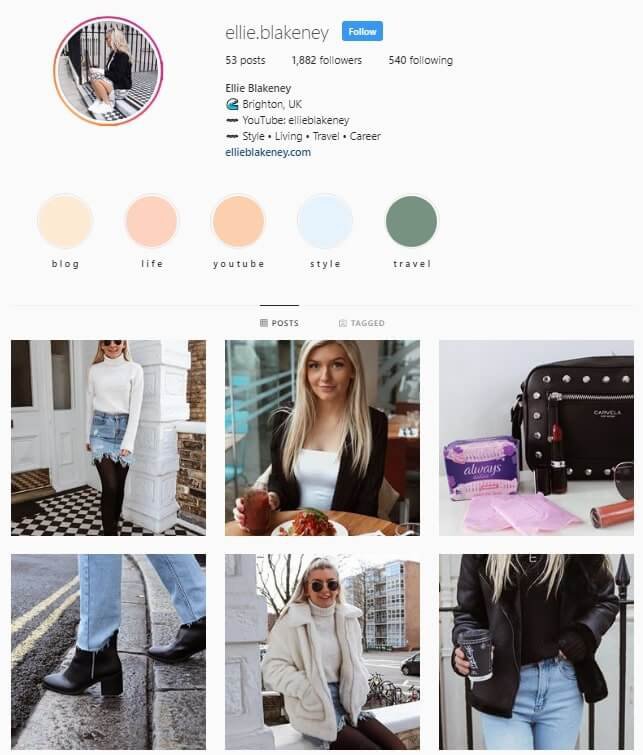
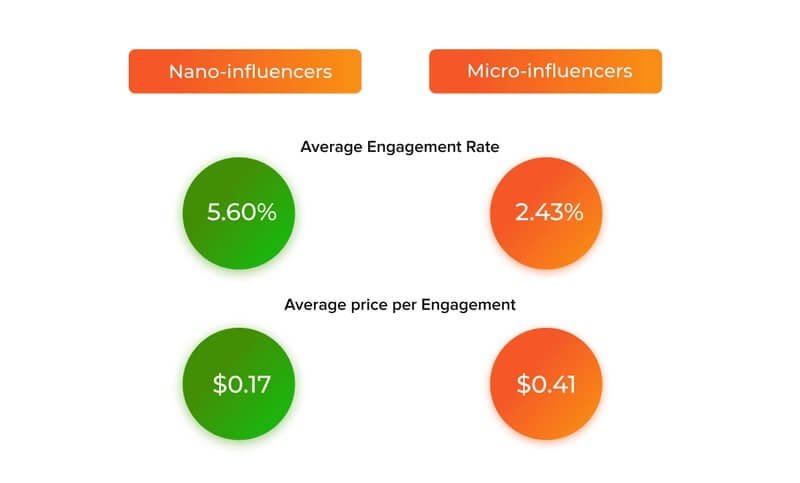
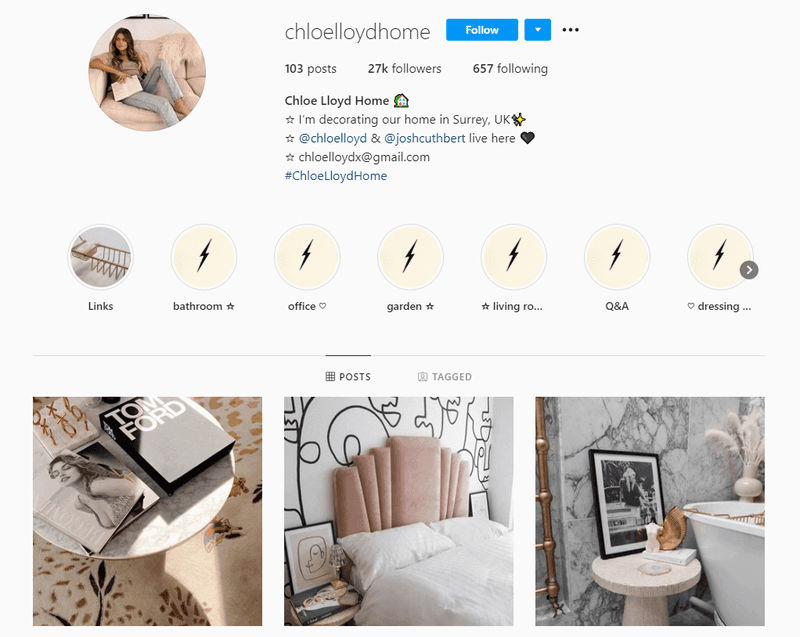
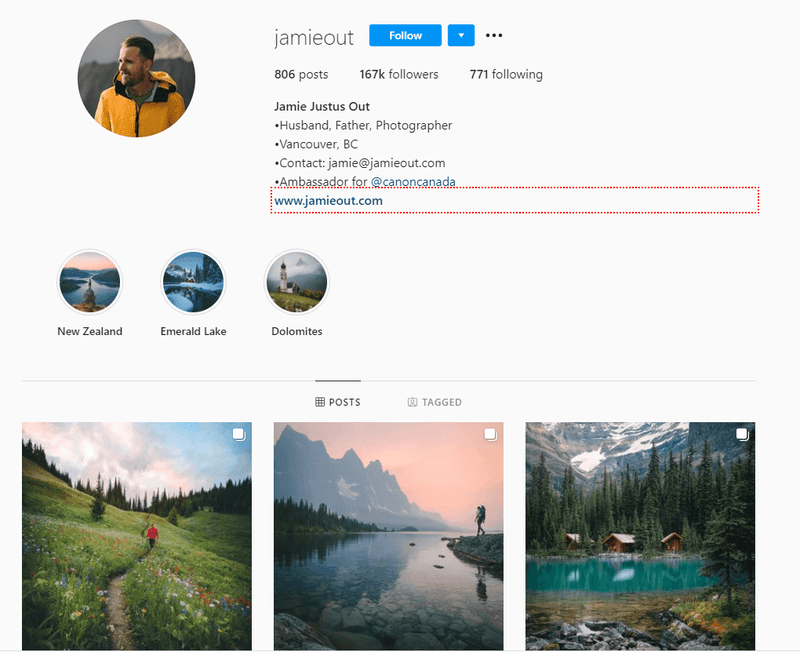
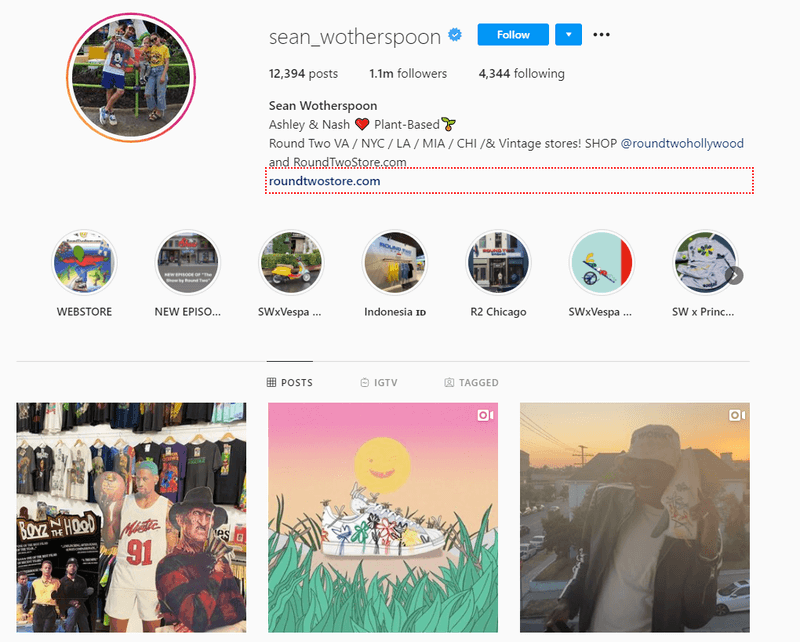
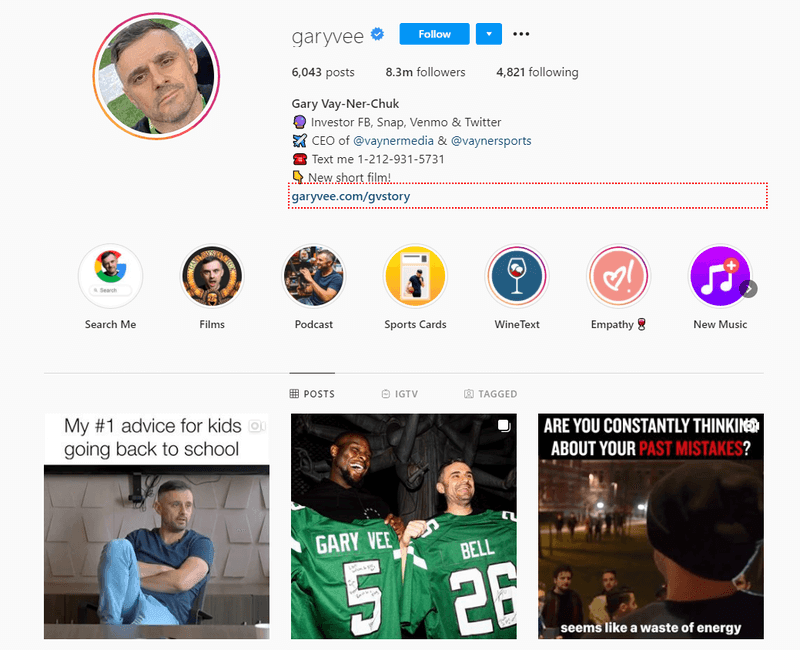
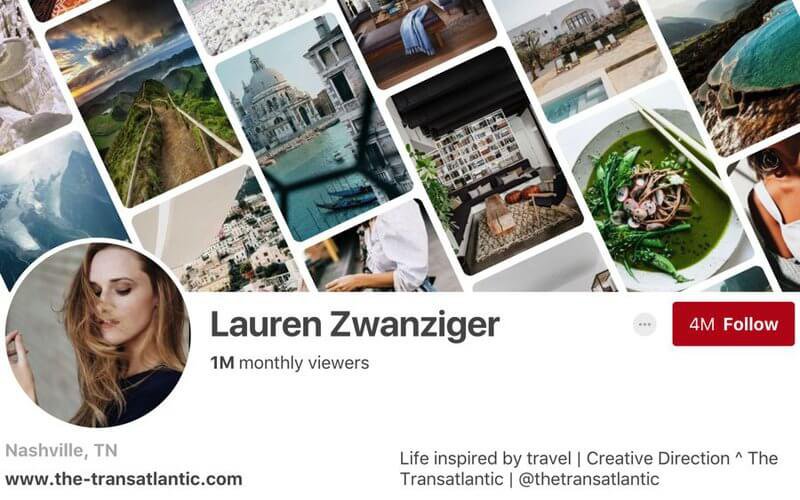
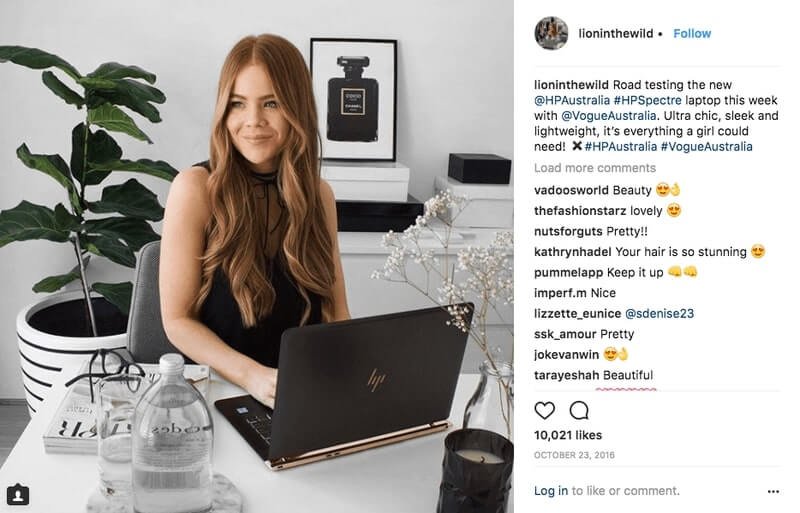
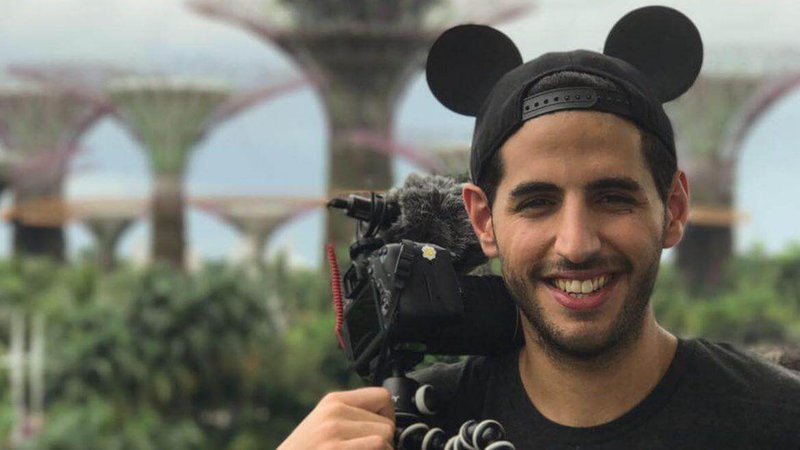
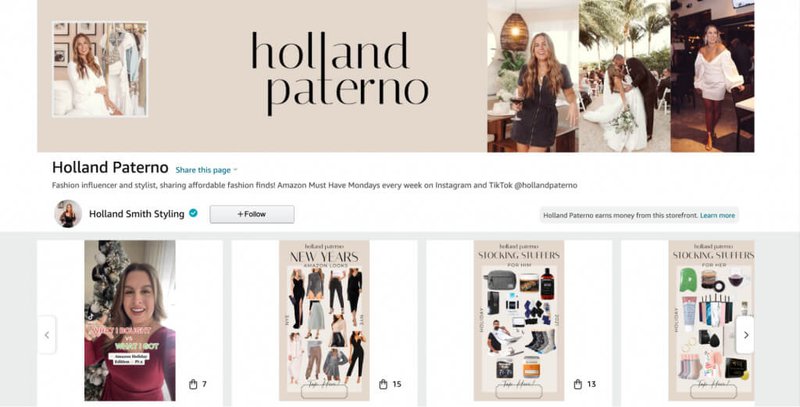
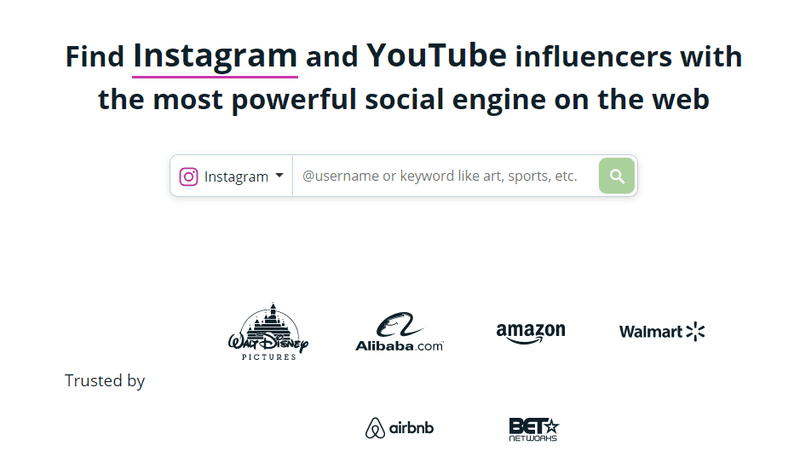
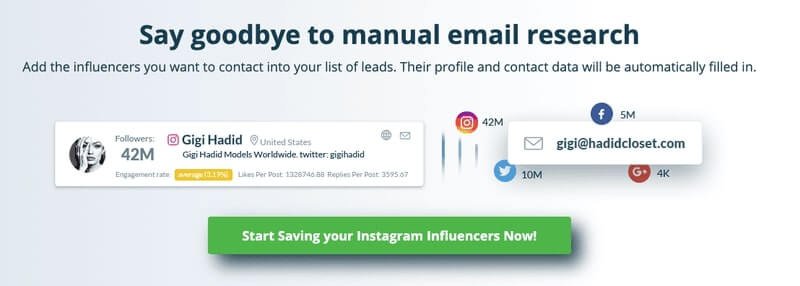
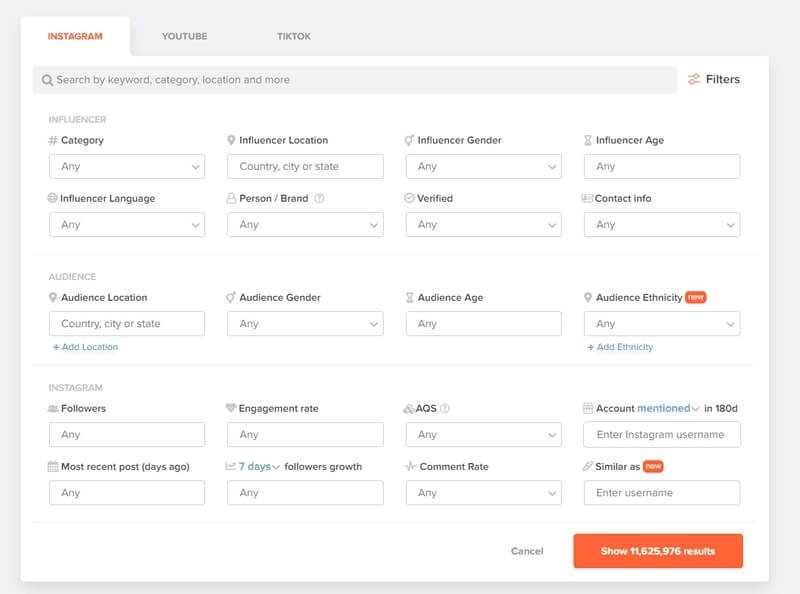
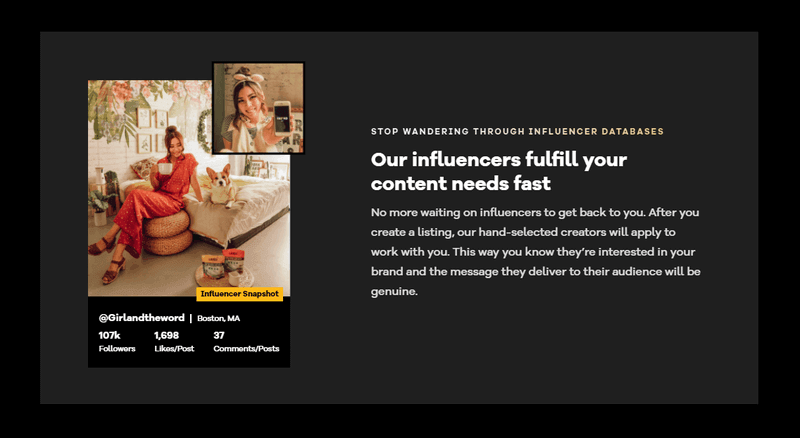
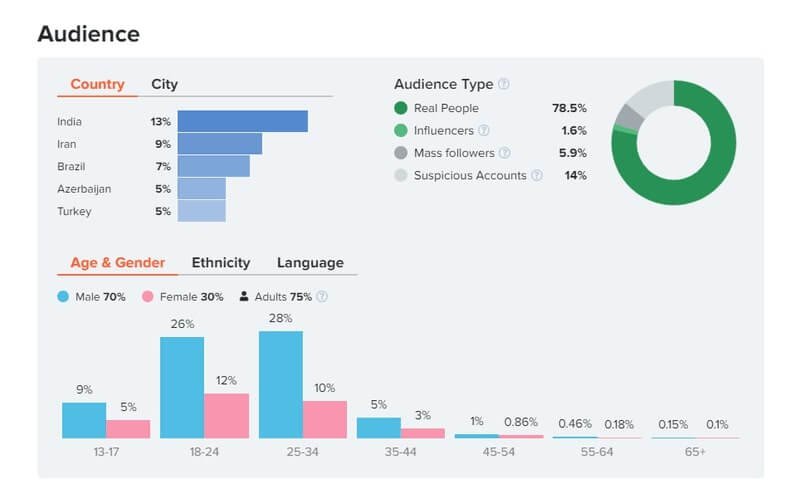
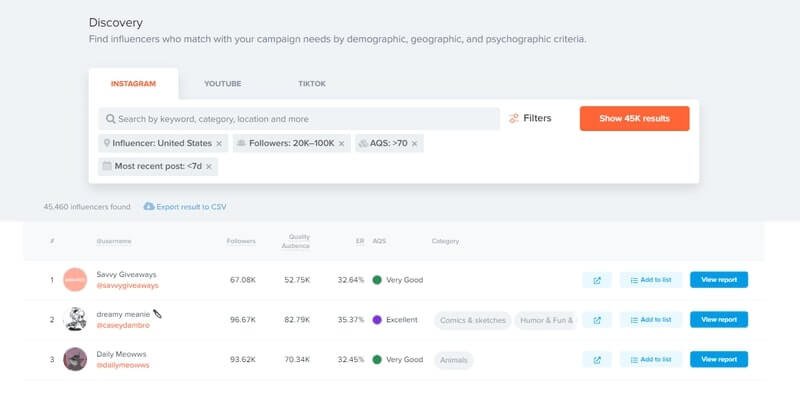
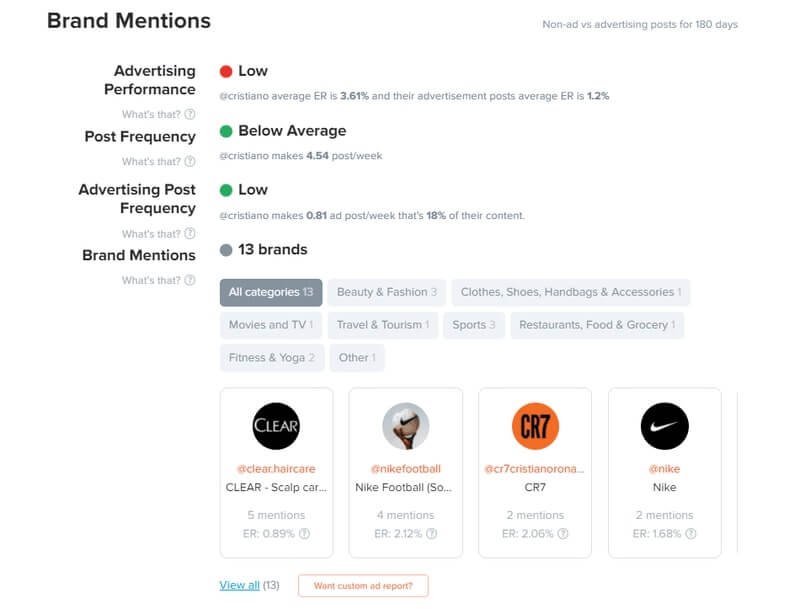
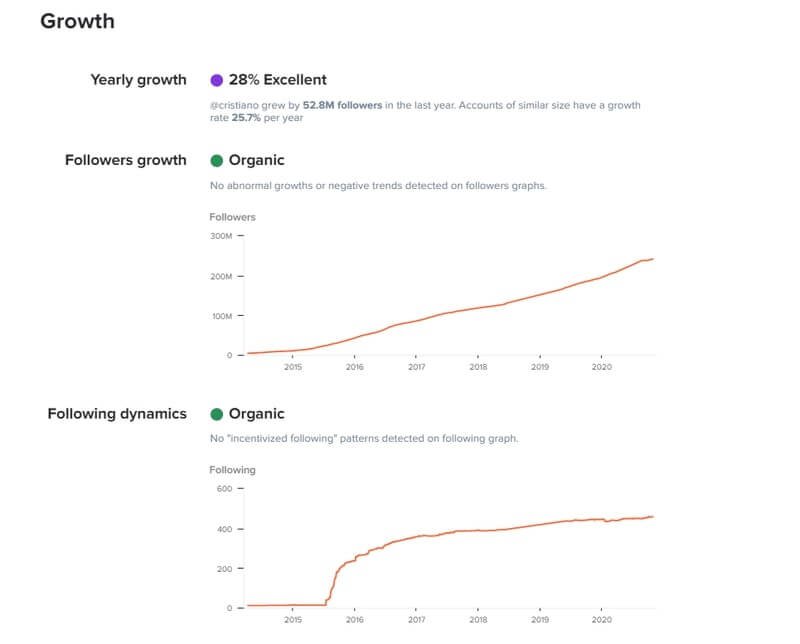
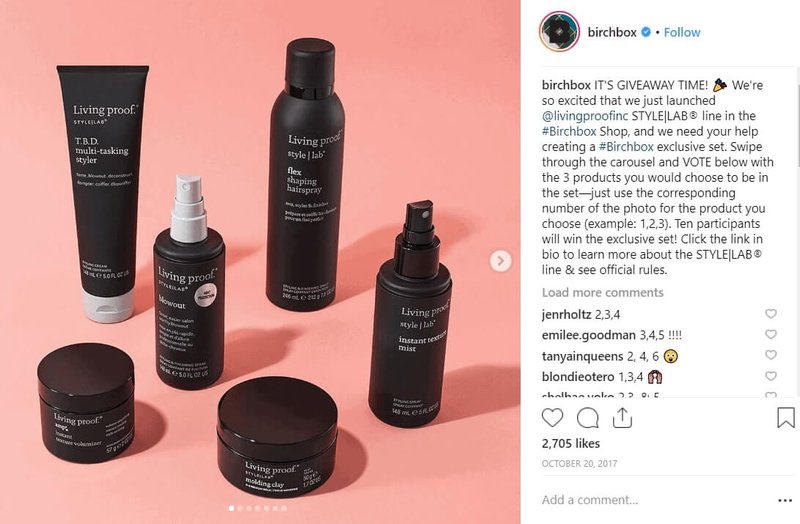
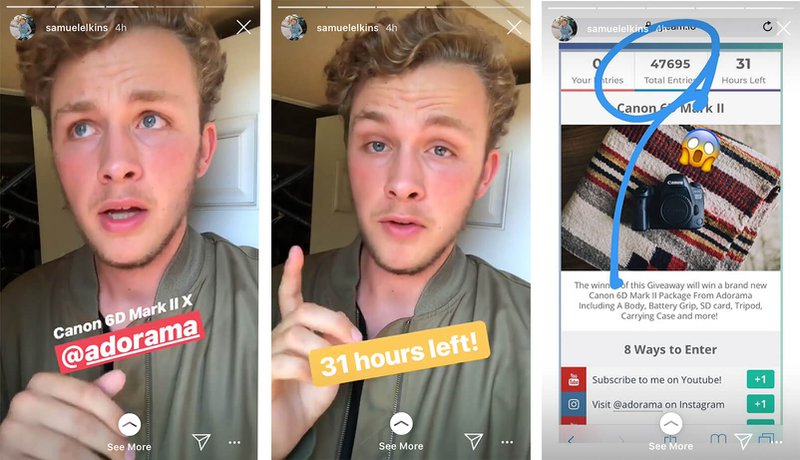
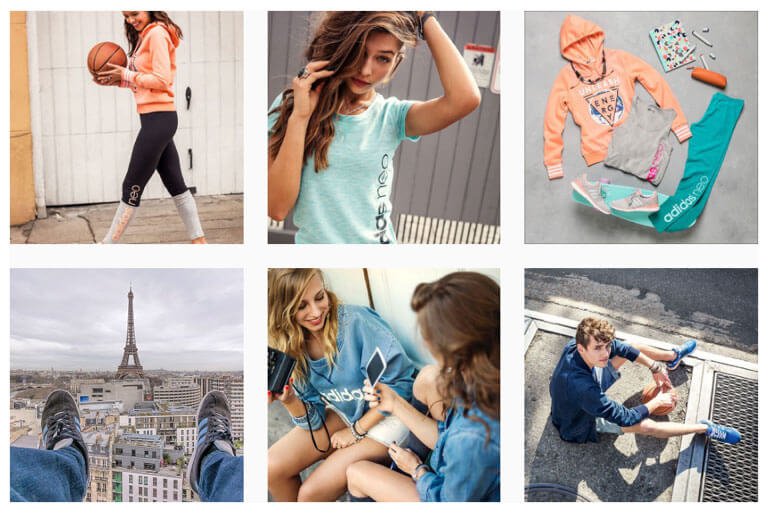
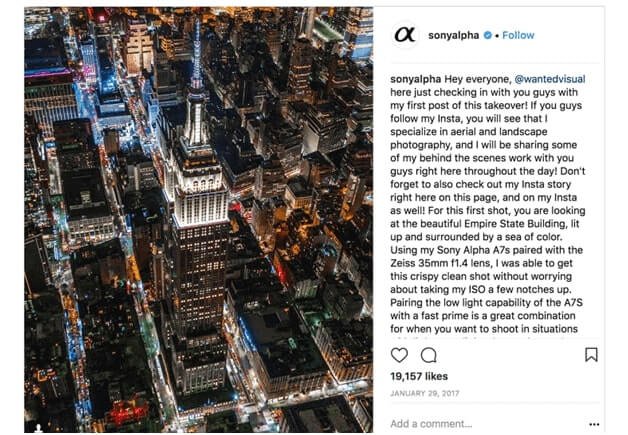
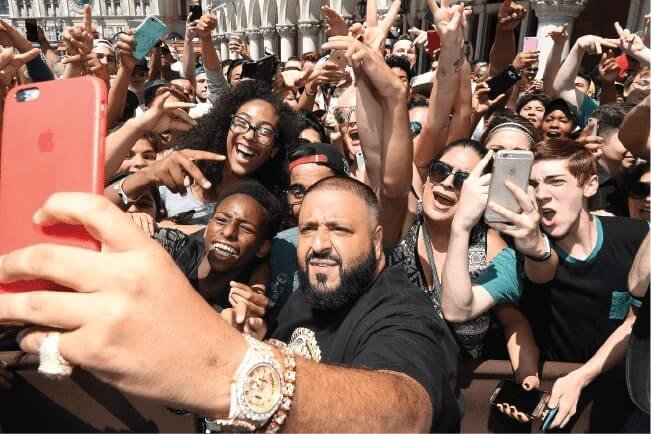

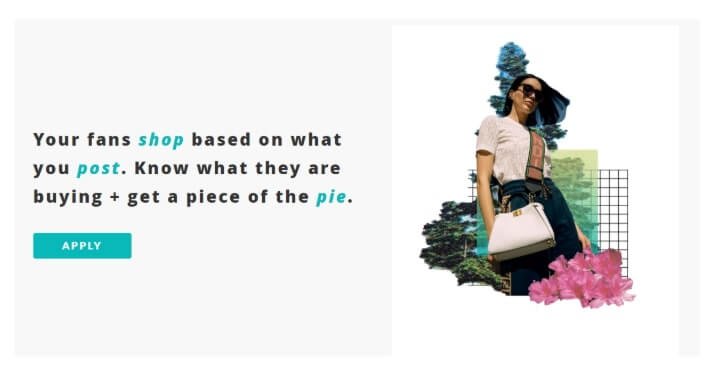
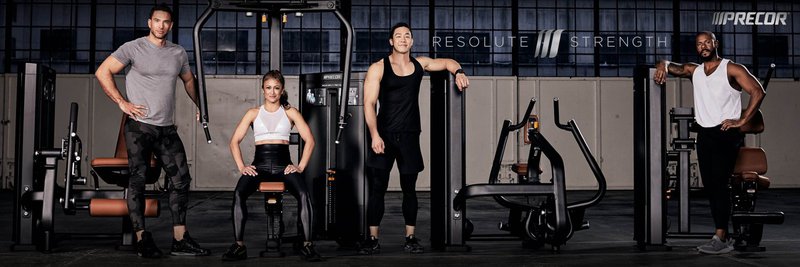
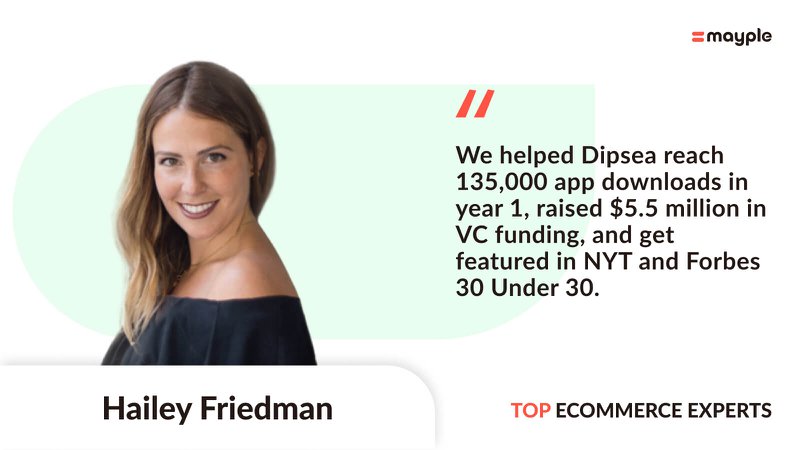
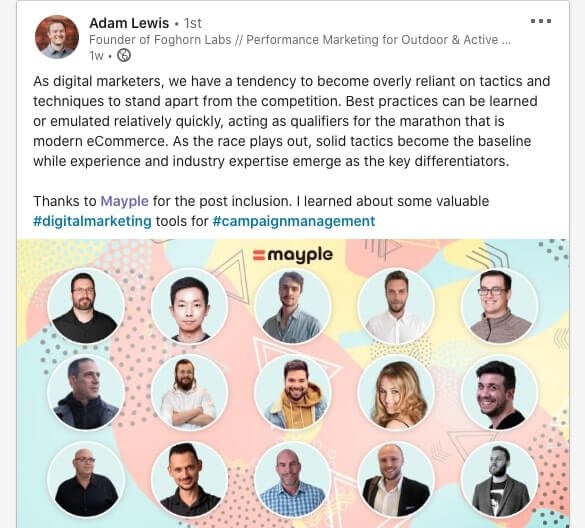
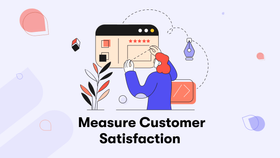
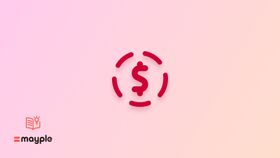
![5 eCommerce Marketing Hacks [{year}]](https://entail.mayple.com/en-assets/mayple/fit-in/280x280/61c1fea2f0e152a4924ab2e2_shutterstock_1360112654_fda8bfc866d1df75d773982160999e79_2000-1699777112933.jpg)

